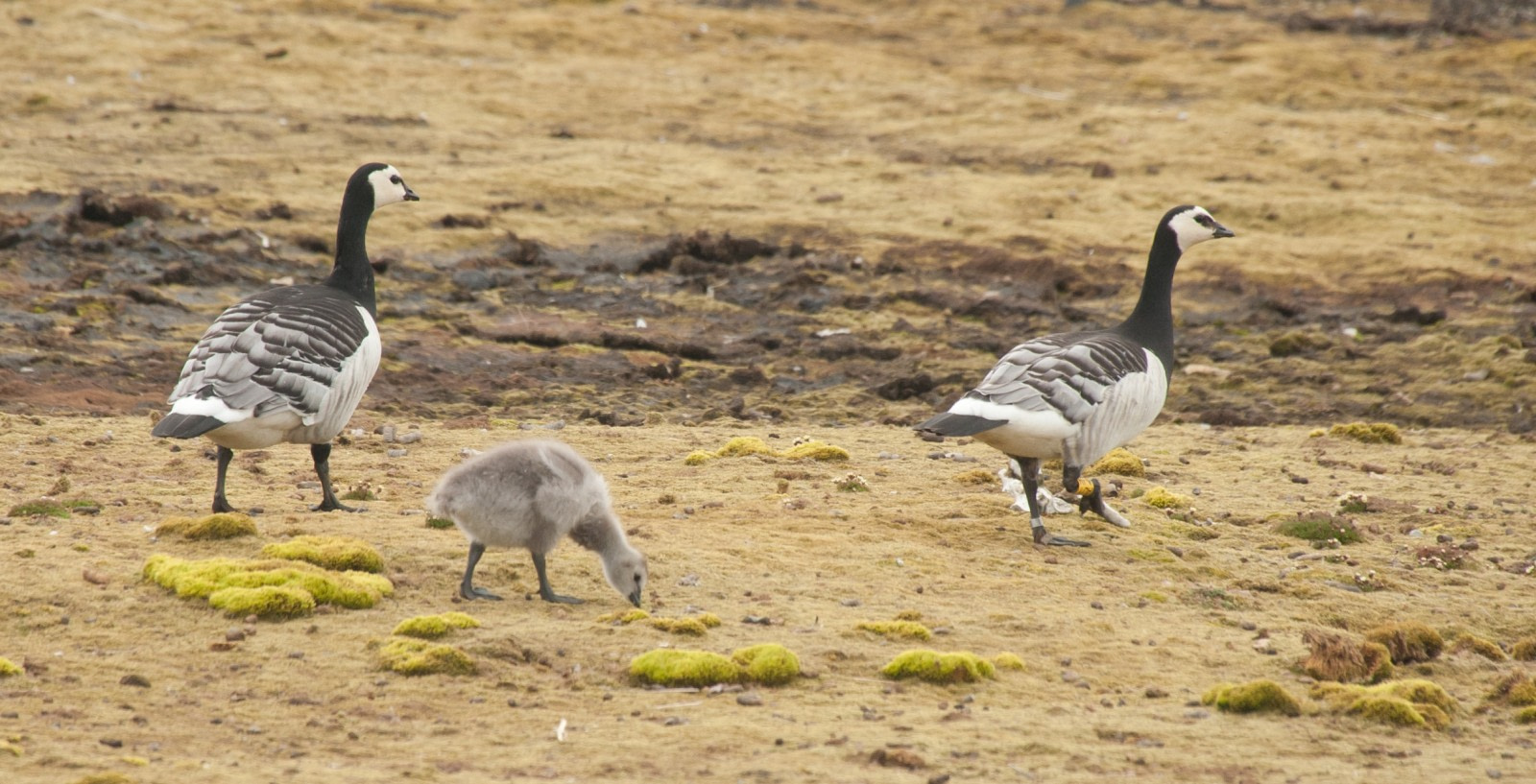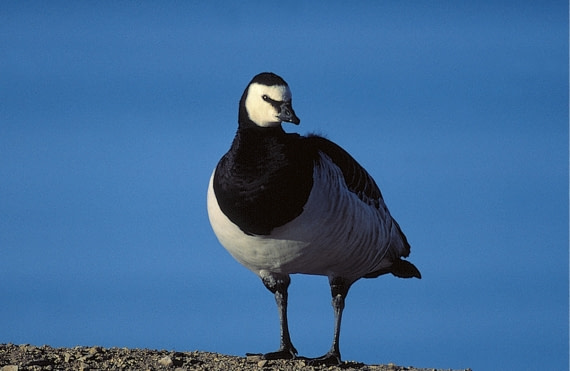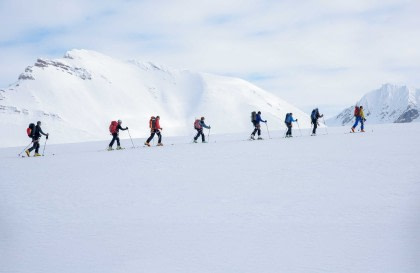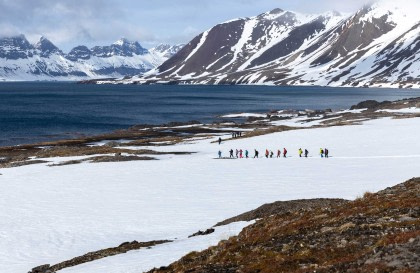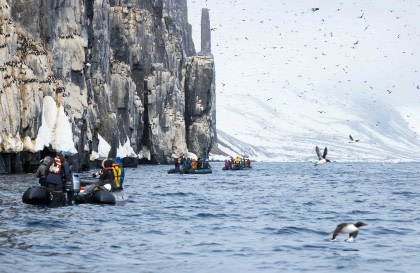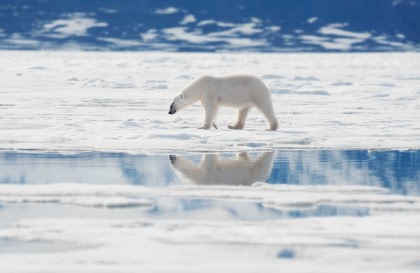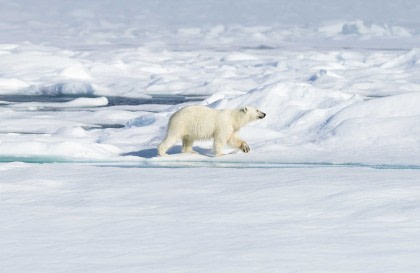Name: Barnacle Goose (Branta leucopsis)
Length: 55 to 70 cm.
Weight: 1 to 2.25kg.
Location: European North Atlantic islands. Infrequent sightings along the northern North American east coast.
Conservation status: Least Concern.
Diet: Grass, sedge, roots, moss, herbs.
Appearance: Black neck, breast, cap, and bill, white face and belly, black on white plumage on the back.
Are Barnacle Geese social?
Barnacle Geese create closely packed colonies on cliff sides and migrate in flocks of hundreds together.
How fast do Barnacle Geese fly?
Barnacle Geese cruise at about 65 km per hour. They can however burst up to speeds of around 95km/hour.
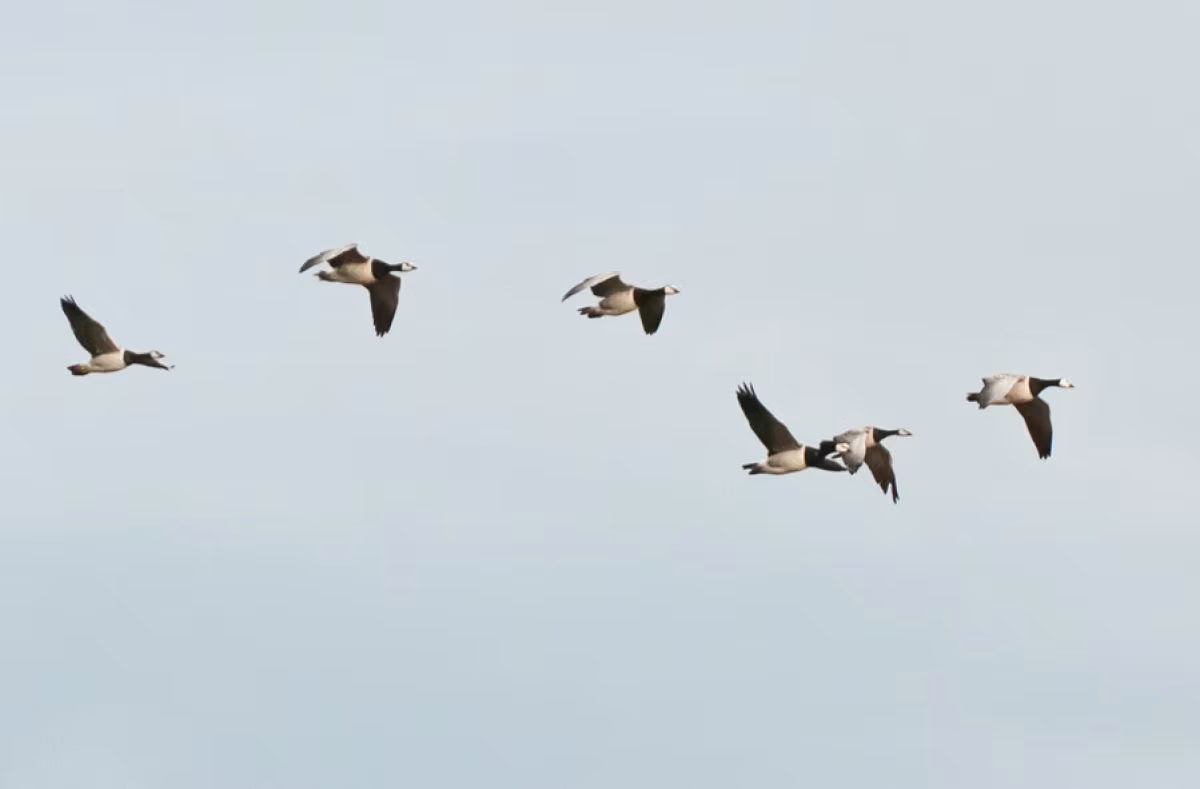
What are Barnacle Geese breeding rituals like?
Barnacle Geese mature sexually around 3 years of age.
Barnacles build their nests high on cliff sides. This has the advantage of putting the nests out of reach of predators, but has the disadvantage of putting them out of reach of easy access to food.
The time of year that the breeding season occurs in depends on how late in the year the snow melts. The later the melt, the later the breeding season. 4 or 5 eggs are laid. The incubation period lasts around 25 days, with the female taking on the entirety of the incubation duty. However the male stays nearby and will guard the nest at times so the female can go off to feed.
The adults will leave the nest immediately after the egg hatches. Like most types of geese, the Barnacle Geese adults do not bring food to their hatchlings. This results in the hungry offspring, only 3 days old, leaping from their nests on the cliffs to the ground below. The goslings are at this point very small, light, and covered with soft down, which helps reduce injury from the fall, but some will still be hurt in the landing, making them easy prey for Arctic Foxes.
The goslings fledge (grow their adult feathers) after they are about 6 weeks old. The adults and goslings will remain together as a unit through the winter until the time that the spring migration begins.
How long do Barnacle Geese live?
Barnacle Geese live up to 24 years.
How many Barnacle Geese are there today?
There are over 400,000 Barnacle Geese in the world today.
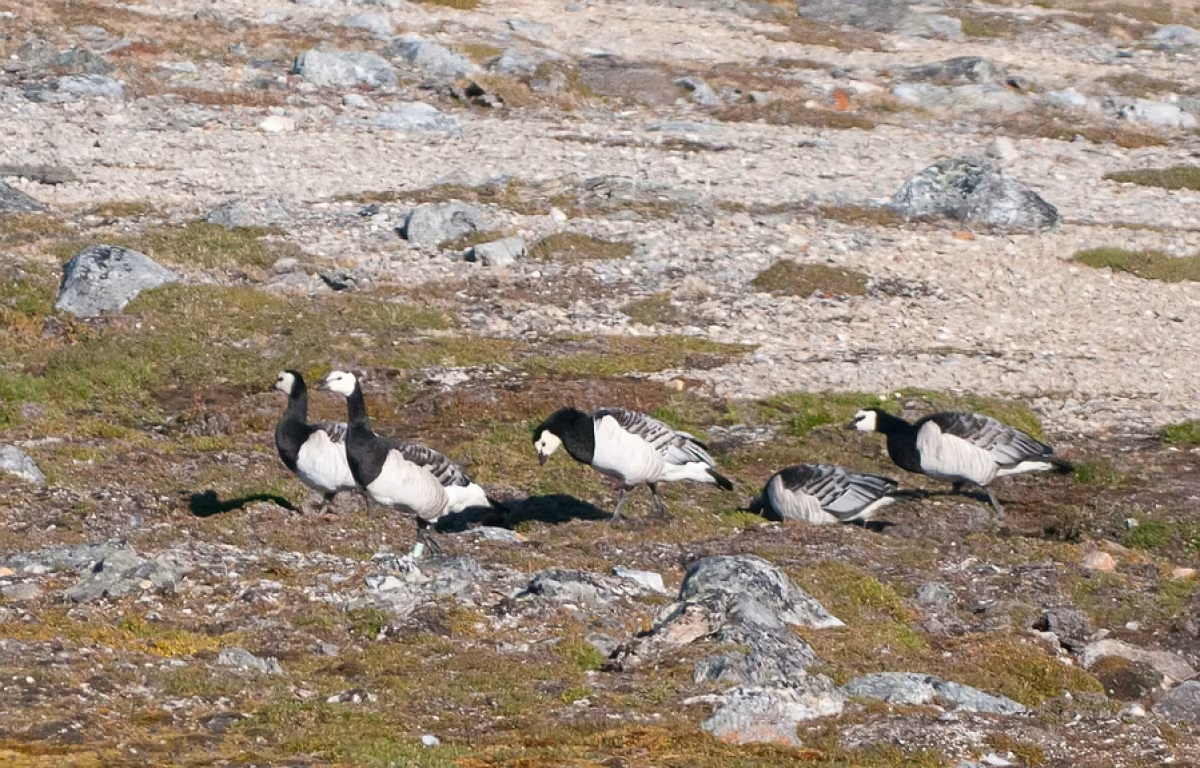
Do Barnacle Geese have any natural predators?
The young on the ground are susceptible to Arctic Foxes.
7 Beautiful Barnacle Goose Facts
- Leucopsis in the Barnacle Goose’s scientific name comes from the ancient Greek words leuko meaning “white” and opsis meaning “faced.”
- For English speakers the word “barnacle” originally only referred to this particular goose, only becoming associated with the crustaceans that attach themselves to ships at a later date.
- In medieval and earlier times some believed that Barnacle Geese were born from the crustaceans called barnacles, thus linking the name between the two. One of the reasons they believed this was that the Geese were never seen in the summer, but the barnacles were, and goslings were thought to be the result. In fact the Geese were summering in the far north.
- Along the same lines, Barnacle Geese were sometimes thought not to be hatched but born from driftwood.
- Some Irish clerics tried using the above 2 legends as an excuse to eat the meat of Barnacle Geese during days of fasting. Pope Innocent III put a stop to this in 1215.
- There are 3 main flocks of Barnacle Geese that never interact. They summer in Greenland, Svalbard, and Novaya Zemlya and winter on the west coast of the U.K., with the third group wintering in Germany and the Netherlands.
- Barnacle Geese are mainly vegetarian but during the winter when plants become harder to find they will also eat insects, shellfish, and molluscs.
